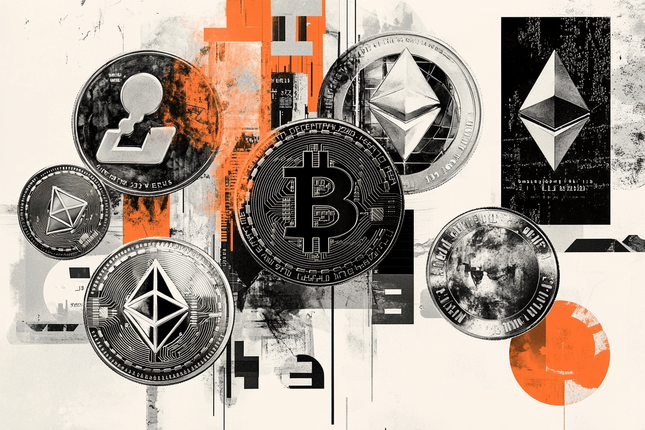Over the past two decades, the G20 emerging markets (EMs)—Argentina, Brazil, China, India, Indonesia, Mexico, Russia, Saudi Arabia, South Africa, and Türkiye—have played increasingly pivotal roles in the global economy. These markets have not only grown faster than advanced economies, but they have also doubled their share in world GDP since 2000, making them integral components of global economic dynamics.
Expanding global trade and investment
Doubling of global footprint
The trade and investment footprint of the G20 EMs has nearly doubled since the early 2000s, reflecting their broader economic integration and increasing influence over global markets. Their active participation in international trade enhances their leverage in global economic negotiations and decision-making processes.
Increased financial integration
The financial integration of these markets with the global economy has intensified, facilitating a greater influx of foreign capital and investments and allowing for more diversified investment portfolios globally. This integration has also increased the potential for economic spillovers between the G20 EMs and other economies, emphasizing the need for enhanced regulatory and fiscal coordination.
Contribution to global demand and supply
Consumers and firms from the G20 EMs constitute a growing segment of global demand, thereby driving production and innovation worldwide. Simultaneously, firms in these countries (notably China, India, and Russia) provide a larger share of total inputs needed globally, cementing their role as critical nodes in Global Value Chains (GVCs).
Critical role in commodities production
Leading producers of green transition materials
G20 EMs are essential in producing commodities vital for the green transition, such as lithium from Argentina and nickel from Indonesia, which are fundamental to battery technology and renewable energy sectors.
China’s dominant role
China remains a dominant force due to its vast industrial base and strategic resource acquisitions, significantly influencing global supply chains and commodity prices, alongside other nations within the G20 EM group that contribute to diversifying these chains and enhancing global supply chain resilience.
Enhanced economic resilience and influence
Reduced output volatility
The G20 EMs have seen reduced output volatility, attributed to their enhanced integration into global markets and diversified economic activities, making them less susceptible to external shocks and more influenced by domestic factors.
Domestic shocks driving global changes
Increasingly, G20 EMs are not just recipients but also originators of global economic trends and shocks, due to their larger economic scale and deeper integration, which allows domestic events in these countries to have far-reaching effects, including on advanced economies.
Growth spillovers and global impack
Significance of growth spillovers
Growth spillovers from G20 EMs have become more significant, explaining up to 5% of GDP variation in advanced economies, highlighting the interconnected nature of these markets with global economic health and stability.
Major contributors to spillovers
China, Russia, and Mexico have notable impacts on their regions and globally through economic fluctuations that affect commodity prices and currency values due to their extensive trade linkages and remittances.
Policy implications and strategic approaches
The capacity of G20 EMs to trigger global fluctuations underscores the need for robust policies that mitigate adverse effects and promote economic diversification, financial stability, and strategic international alliances.
Navigating commodities and currencies in G20 EMs
For traders specializing in commodities and currencies, the evolving dynamics of the G20 EMs present a landscape rife with opportunities tempered by risks. Traders must adopt a multifaceted strategy:
Active monitoring and adaptation
Vigilantly monitor policy changes and economic updates from these markets, particularly those impacting commodities and currency valuations. Adapting trading strategies in response to shifts in China’s economic policies, for instance, can provide critical advantages in both commodity and currency markets.
Diversification across markets
Expand trading portfolios to include a variety of commodities and currencies to spread risk. This diversification is essential to mitigate potential losses from localized fluctuations and policy shifts in any single market.
Capitalizing on economic spillovers
Leverage the economic spillovers from major players like China, Russia, and Mexico. Understanding the implications of these spillovers is crucial for forecasting market movements and positioning profitably ahead of trends.
Strategic risk management
Implement dynamic risk management measures, including stop-loss orders and hedging strategies, to protect against sudden and severe market movements. Such tactics are vital in managing the inherent volatilities in G20 EM commodities and currencies.
By embracing these strategies, traders can not only safeguard their investments but also optimize their trading outcomes in the face of G20 EMs’ market volatilities. These actions will allow traders to navigate the complexities of emerging markets with greater confidence and profitability.
CFDs are complex instruments and come with a high risk of losing money rapidly due to leverage. You should consider whether you understand how CFDs work and whether you can afford to take the high risk of losing your money. The Article/Information available on this website is for informational purposes only, you should not construe any such information or other material as investment advice or any other research recommendation. Nothing contained on this Article/ Information in this website constitutes a solicitation, recommendation, endorsement, or offer by LegacyFX and A.N. ALLNEW INVESTMENTS LIMITED in Cyprus or any affiliate Company, XE PRIME VENTURES LTD in Cayman Islands, AN All New Investments BY LLC in Belarus and AN All New Investments (VA) Ltd in Vanuatu to buy or sell any securities or other financial instruments in this or in in any other jurisdiction in which such solicitation or offer would be unlawful under the securities laws of such jurisdiction. LegacyFX and A.N. ALLNEW INVESTMENTS LIMITED in Cyprus or any affiliate Company, XE PRIME VENTURES LTD in Cayman Islands, AN All New Investments BY LLC in Belarus and AN All New Investments (VA) Ltd in Vanuatu are not liable for any possible claim for damages arising from any decision you make based on information or other Content made available to you through the website, but investors themselves assume the sole responsibility of evaluating the merits and risks associated with the use of any information or other Article/ Information on the website before making any decisions based on such information or other Article.
Editors’ Picks

EUR/USD trims gains, nears 1.1700
The EUR/USD pair eases in the American afternoon and approaches the 1.1700 mark. The pair surged earlier in the day after the ECB left interest rates unchanged and upwardly revised inflation and growth figures. The US CPI rose 2.7% YoY in November, nearing Fed’s goal.

GBP/USD returns to 1.3370 after BoE, US CPI
The GBP/USD pair jumped towards the 1.3440 early in the day, following the BoE decision to cut rates, and US CPI data, which was much softer than anticipated. The US Dollar, however, managed to regain the ground lost during US trading hours.

Gold extends its consolidative phase around $4,330
The bright metal cannot attract speculative interest on Thursday, despite central banks announcements and the United States latest inflation update. XAU/USD is stuck around $4,330, confined to a tight intraday range.

Crypto Today: Bitcoin, Ethereum hold steady while XRP slides amid mixed ETF flows
Bitcoin eyes short-term breakout above $87,000, underpinned by a significant increase in ETF inflows. Ethereum defends support around $2,800 as mild ETF outflows suppress its recovery. XRP holds above at $1.82 amid bearish technical signals and persistent inflows into ETFs.

Bank of England cuts rates in heavily divided decision
The Bank of England has cut rates to 3.75%, but the decision was more hawkish than expected, leaving market rates higher and sterling slightly stronger. It's a close call whether the Bank cuts again in February or March.
RECOMMENDED LESSONS
Making money in forex is easy if you know how the bankers trade!
I’m often mystified in my educational forex articles why so many traders struggle to make consistent money out of forex trading. The answer has more to do with what they don’t know than what they do know. After working in investment banks for 20 years many of which were as a Chief trader its second knowledge how to extract cash out of the market.
5 Forex News Events You Need To Know
In the fast moving world of currency markets where huge moves can seemingly come from nowhere, it is extremely important for new traders to learn about the various economic indicators and forex news events and releases that shape the markets. Indeed, quickly getting a handle on which data to look out for, what it means, and how to trade it can see new traders quickly become far more profitable and sets up the road to long term success.
Top 10 Chart Patterns Every Trader Should Know
Chart patterns are one of the most effective trading tools for a trader. They are pure price-action, and form on the basis of underlying buying and selling pressure. Chart patterns have a proven track-record, and traders use them to identify continuation or reversal signals, to open positions and identify price targets.
7 Ways to Avoid Forex Scams
The forex industry is recently seeing more and more scams. Here are 7 ways to avoid losing your money in such scams: Forex scams are becoming frequent. Michael Greenberg reports on luxurious expenses, including a submarine bought from the money taken from forex traders. Here’s another report of a forex fraud. So, how can we avoid falling in such forex scams?
What Are the 10 Fatal Mistakes Traders Make
Trading is exciting. Trading is hard. Trading is extremely hard. Some say that it takes more than 10,000 hours to master. Others believe that trading is the way to quick riches. They might be both wrong. What is important to know that no matter how experienced you are, mistakes will be part of the trading process.
The challenge: Timing the market and trader psychology
Successful trading often comes down to timing – entering and exiting trades at the right moments. Yet timing the market is notoriously difficult, largely because human psychology can derail even the best plans. Two powerful emotions in particular – fear and greed – tend to drive trading decisions off course.
